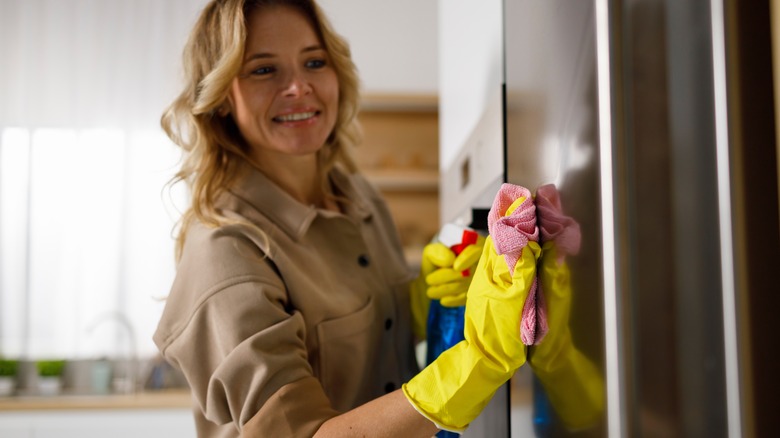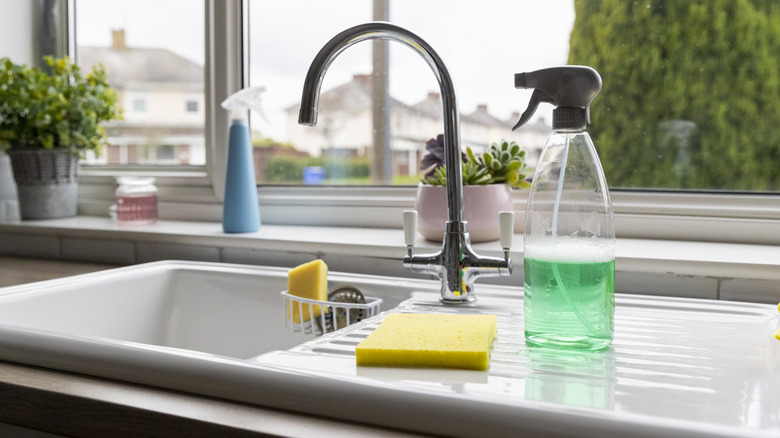Cleaning
Masie O’Toole
Vinegar is a kitchen staple, but it can also be used as an all-natural, inexpensive, and versatile cleaning tool. Because of its flexibility and ease of access, it’s become an essential part of many people’s cleaning routine. But many don’t know that cleaning certain kinds of rubber with undiluted vinegar can cause more harm than good when it comes to the integrity of their appliances.
The trademark zing of vinegar and much of its cleaning power is because it’s a mild kind of acid. This property makes it a great choice for cutting through grease or tackling stubborn stains, but it can be a bit too harsh for some materials. Rubber is a very long-lasting, durable, and flexible part of many kitchens, but spraying it with vinegar can cause it to deteriorate. Vinegar can essentially eat away at certain rubbers, leaving you with components that are squeaky clean but don’t seem to function as well as they used to.
Where to avoid using vinegar

Andriiii/Shutterstock
Because vinegar eats away at rubber, it’s best to avoid using it on certain parts of your appliances in the kitchen. Some kinds of rubber aren’t as prone to damage from this — natural rubbers, silicone, butyl-synthetic rubber, and ethylene-propylene are usually fine — but unless you know for sure what kind of rubber your appliance brand uses, it’s best to stick to another kind of cleaner.
While the majority of the surfaces on your appliance are likely made of plastic or metal, the seals that keep water or cold air from leaking out are usually made of rubber. A minor issue in this seal might not cause many visible issues, but leaks, especially of cold air from your fridge or freezer, can make the appliance run less efficiently. Over time, this can seriously increase your electric bill, decrease the shelf life of your perishable food, and lead to you having to replace your fridge altogether.
What to use instead

Solstock/Getty Images
Vinegar eating away at rubber is only an issue when it’s undiluted. So, if you’re still committed to using it as a cleaning product, water it down a bit before you start spraying. Simple all-purpose cleaners can also do a solid job clearing away dirt and grime from your rubber seals, though it’s always best to use something that doesn’t rely on harsh chemicals like bleach if you’re going to be spraying it around your food and dishes.
For a more natural approach, you could also try out another tried and true kitchen cleaning agent: baking soda. Mix a small amount of soap, baking soda, and water in a spray bottle, and get to work disinfecting around the kitchen. Baking soda is alkaline rather than acidic, meaning it still has the power to dissolve stubborn buildup, but it won’t negatively impact the rubber seals and gaskets around your kitchen.



